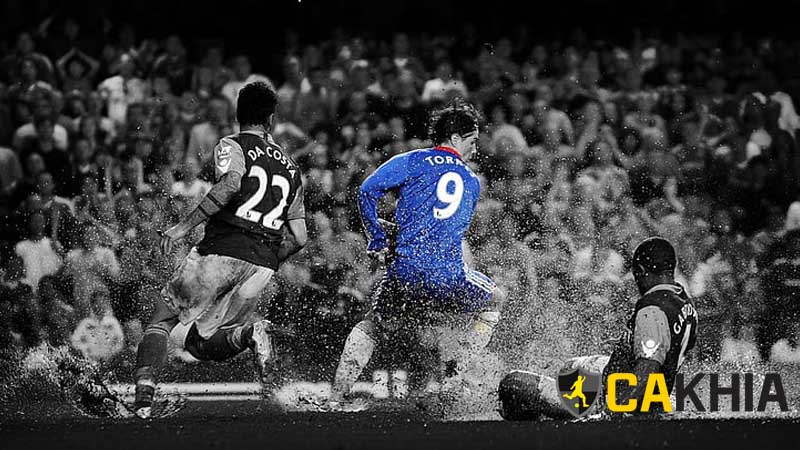Cakhia TV – Trực tiếp bóng đá với dàn BLV Hot nhất
Cakhia TV nơi tận hưởng trọn vẹn từng khoảnh khắc của các trận đấu mà bạn đam mê. Bạn là người yêu thích thể thao và muốn theo dõi các trận đấu hấp dẫn của các môn bóng đá, bạn muốn xem trực tiếp các sự kiện thể thao lớn như World Cup, Olympic, Champions League, các giả Vô Địch Quốc Gia từ lớn như Premier League, SeriA, LaLiga, Bundesliga…. đến những giải đấu vô danh.
Bạn muốn xem lại các khoảnh khắc đáng nhớ của các ngôi sao thể thao mà bạn yêu mến? Nếu câu trả lời là có, thì bạn không thể bỏ qua website xem thể thao trực tuyến CakhiaTV.
Cakhia TV là gì?

Cakhia TV trực tiếp bóng đá là website xem thể thao trực tuyến miễn phí và chất lượng cao. Cakhia TV cung cấp cho bạn các trận đấu hấp dẫn được phát sóng trên những kênh truyền hình thể thao nổi tiếng như K+, VTV, VTC, HTV, Fox Sports, ESPN, Sky Sports…
Bạn có thể xem trực tiếp hoặc xem lại các trận đấu của các môn thể thao khác nhau một cách dễ dàng và nhanh chóng. Bạn cũng có thể xem các video bình luận, phân tích, tổng hợp và highlight của các trận đấu sắp, đã và đang diễn ra trên toàn thế giới.
Cakhia có gì đặc biệt?
Cakhia không chỉ là website xem thể thao trực tuyến thông thường. Cakhia 10 link còn là nơi bạn có thể giao lưu, chia sẻ và thảo luận về các chủ đề liên quan đến thể thao với hàng ngàn người hâm mộ khác.
Bạn có thể bày tỏ ý kiến, cảm xúc và động viên đội bóng yêu thích của bạn trong các phòng chat riêng biệt cho mỗi trận đấu.
Bạn cũng có thể tham gia các cuộc thi dự đoán kết quả, bình chọn cầu thủ xuất sắc nhất và nhận được các phần quà hấp dẫn.
Cà Khịa TV phát trực tiếp bóng đá
Một trong những tính năng nổi bật của Cà Khịa TV là phát trực tiếp bóng đá. Bạn có thể xem trực tiếp tất cả các trận đấu gồm các giải đấu lớn như World Cup, C1, C2, C3, Ngoại Hạng Anh, Laliga, Bundesliga, Serie A, Ligue 1, V-League…
Bạn cũng có thể xem trực tiếp các trận đấu của các đội tuyển quốc gia như Việt Nam, Brazil, Argentina, Pháp, Đức, Anh… Bạn chỉ cần chọn kênh hoặc trận đấu mà bạn muốn xem và thưởng thức bóng đá trên Cà Khịa .TV
Hiển thị, cập nhật lịch thi đấu dễ nhìn, sớm nhất
Một tính năng khác của Cà Khịa Tivi là hiển thị lịch thi đấu dễ nhìn, dễ hiểu. Bạn có thể xem lịch thi đấu của các giải đấu và các môn thể thao khác nhau trên Cà Khịa Bóng Đá. Bạn có thể xem lịch thi đấu theo hằng ngày và được đội ngũ của chúng tôi cập nhật liên tục.
Bạn cũng có thể xem lịch thi đấu theo giờ Việt Nam hoặc giờ quốc tế. Bạn cũng có thể lọc lịch thi đấu theo môn thể thao, giải đấu hoặc đội bóng mà bạn quan tâm.
Bảng xếp hạng của các đội bóng tại mọi giải đấu chính thức

Một tính năng nữa của ca khia tv là cập nhật liên tục bảng xếp hạng đội bóng tại các giải đấu. Bạn có thể xem bảng xếp hạng của các giải đấu bóng đá và các môn thể thao khác trên Cà Khịa.
- Bạn có thể xem bảng xếp hạng theo số điểm, số trận, số bàn thắng, số bàn thua, hiệu số…
- Bạn cũng có thể xem bảng xếp hạng theo vòng loại, vòng bảng, vòng knock-out…
- Bạn cũng có thể so sánh và phân tích sức mạnh của các đội bóng qua bảng xếp hạng.
Hệ thống LiveScore cập nhật tỷ số bóng đá liên tục
Một tính năng quan trọng của Cakhia6 là hệ thống LiveScore cập nhật tỷ số bóng đá liên tục. Bạn có thể xem tỷ số bóng đá của các trận đấu diễn ra trong ngày hoặc đã kết thúc trên Cakhia 6.link Bạn có thể xem tỷ số bóng đá theo thời gian thực, theo hiệp, theo phút…
Bạn cũng có thể xem tỷ số bóng đá theo đội bóng, theo giải đấu, theo môn thể thao… Bạn cũng có thể xem các thông tin chi tiết của các trận đấu như đội hình, thay người, thẻ phạt, bàn thắng, kiến tạo, cú sút, pha cứu thua…
Cakhia6 cập nhật bảng tỷ lệ các trận đấu bóng đá
Một tính năng hữu ích của Cakhia 6 TV là cập nhật bảng tỷ lệ kèo bóng đá. Bạn có thể xem bảng tỷ leej bóng đá của các trận đấu sắp diễn ra hoặc đã diễn ra trên Cakhia 6 TV. Bạn cũng có thể xem bảng tỷ lệ bóng đá theo các loại như kèo châu Á, kèo châu Âu, kèo bàn thắng… Bạn cũng có thể xem biến động của bảng tỷ lệ bóng đá theo thời gian và so sánh các tỷ lệ khác nhau.
Cakhia 6 còn là một trang tin tức
Cakhiatv 6.link còn là một trang tin tức, cập nhật tin tức bóng đá. Bạn có thể xem tin tức bóng đá mới nhất và nóng nhất trên Cakhia6. Bạn có thể xem tin tức bóng đá về các chủ đề như chuyển nhượng, huấn luyện viên, cầu thủ, giải đấu, sự kiện…
Bạn cũng có thể xem tin tức bóng đá theo đội bóng, theo giải đấu, theo môn thể thao… Bạn cũng có thể xem các bài viết phân tích, bình luận và dự đoán của các cộng tác viên của website hay là chính những người xem như các bạn cập nhật.

Đội ngũ BLV đỉnh của đỉnh
Một điểm nhấn để các bạn có thể theo dõi một trận bóng từ đầu đến cuối là những thông tin được các BLV đưa đến với bạn một cách hài hước và dí dỏm. Nhưng bên cạnh đó cũng là những thông tin rất hữu ích được đội ngũ blv của Cà Khịa TV thu thập và tìm hiểu kĩ chuẩn bị trước khi trận đấu bắt đầu.
Đội ngũ của Cà Khịa Tivi cũng rất nhiệt tình và sung sức khi có thể phục vụ các bạn nhiều trận đấu liên tiếp trong ngày.
Xem kết quả bóng đá tại Cà Khịa TV
Một tính năng tiện dụng của CakhiaTV là xem kết quả bóng đá. Bạn có thể xem kết quả bóng đá của các trận đấu đã diễn ra trong ngày hoặc trong tuần trên CAkhia 10 Link. Bạn có thể xem kết quả bóng đá theo tỷ số chung cuộc, theo hiệp, theo phút.
Bạn cũng có thể xem kết quả bóng đá theo đội bóng, theo giải đấu, theo môn thể thao… Bạn cũng có thể xem các thông tin chi tiết của các trận đấu như số lần sút trúng khung thành, số lần sút ra ngoài, số lần phạm lỗi…
Bạn có thể xem lại full video trận đấu của các trận đấu đã diễn ra trong ngày hoặc trong tuần trên Cakhia Link. Bạn có thể xem lại full video trận đấu theo thời lượng, theo hiệp, theo phút… Bạn cũng có thể xem lại full video trận đấu theo đội bóng, theo giải đấu, theo môn thể thao…
Bạn cũng có thể xem các chi tiết quan trọng của các trận đấu như bàn thắng, kiến tạo, cú sút, pha cứu thua…
Cách sử dụng Cakhia TV như thế nào?
Để xem Cakhia TV trực tiếp bóng đá, bạn chỉ cần có một thiết bị kết nối internet như máy tính, điện thoại thông minh hoặc máy tính bảng. Bạn không cần phải có tài khoản và tất cả đều hoàn toàn miễn phí.
Bạn truy cập vào trang web [https://www.petergillis.net/] và chọn kênh hoặc trận đấu mà bạn muốn xem. Bạn cũng có thể tìm kiếm theo tên đội bóng, giải đấu hoặc môn thể thao mà bạn quan tâm. Ngoài ra, bạn cũng có thể theo dõi lịch thi đấu, bảng xếp hạng và tin tức mới nhất về các sự kiện thể thao trên website.
Có rất nhiều lý do để bạn chọn Cakhia Link là website xem thể thao trực tuyến yêu thích của bạn. Đây là một số lý do tiêu biểu:
- Ca khia TV miễn phí và không có quảng cáo phiền phức. Bạn không phải lo lắng về việc bị gián đoạn hoặc mất tiền khi xem thể thao trên kênh.
- Cà Khịa Bóng Đá chất lượng cao và ổn định. Bạn có thể xem thể thao trên Cakhiatv với độ phân giải HD, âm thanh sống động và tốc độ truyền tải nhanh. Bạn không phải chịu đựng những hình ảnh mờ nhoè, tiếng rè hay bị lag khi xem thể thao trên Cakhiatv link.
- Bạn có thể xem được hầu hết các môn thể thao và các giải đấu lớn nhỏ trên thế giới trên Cakhia 6 tv. Bạn không bao giờ bị bỏ lỡ bất kỳ trận đấu nào của đội bóng hoặc vận động viên yêu thích của bạn .
- Cà Khịa TV cộng đồng và gắn kết. Bạn có thể gặp gỡ và kết bạn với những người hâm mộ thể thao khác trên Ca Khia. Bạn có thể cùng nhau chia sẻ niềm vui, nỗi buồn và đam mê về thể tha.
Làm thế nào để tạo một tài khoản trên Cà Khịa TV?

Cakhia6 không yêu cầu bạn tạo một tài khoản để xem thể thao trực tuyến. Bạn chỉ cần truy cập trang trực tuyến [cakhia 6.link trực tiếp] và chọn kênh hoặc trận đấu mà bạn muốn xem. Tuy nhiên, nếu bạn muốn sử dụng các tính năng khác của cakhia như giao lưu, chia sẻ và thảo luận về các chủ đề liên quan đến thể thao với hàng ngàn người hâm mộ khác.
- Bước 1: Truy cập trang trực tuyến [https://www.petergillis.net/] và nhấn vào biểu tượng người dùng ở góc phải trên của màn hình.
- Bước 2: Nhập số điện thoại của bạn và nhấn vào nút “Gửi mã xác nhận”.
- Bước 3: Nhập mã xác nhận mà bạn nhận được qua tin nhắn SMS và nhấn vào nút “Xác nhận”.
- Bước 4: Nhập tên hiển thị, mật khẩu và email (tùy chọn) của bạn và nhấn vào nút “Đăng ký”.
Sau khi hoàn thành các bước trên, bạn đã có một tài khoản trên cakhia và có thể sử dụng các tính năng của website.
Kết luận
Cakhia là website xem thể thao trực tuyến đáp ứng được nhu cầu và sở thích của nhiều người hâm mộ thể thao. Với Cakhia TV, bạn có thể xem trực tiếp, xem lại, xem kết quả, xem tỷ lệ kèo, xem video highlight và xem tin tức của các môn thể thao và các giải đấu khác nhau.
Bạn cũng có thể giao lưu, chia sẻ và thảo luận về các chủ đề liên quan đến thể thao với hàng ngàn người hâm mộ khác trên CakhiaTV.
Cà Khịa TV là website xem thể thao trực tuyến miễn phí, chất lượng cao, đa dạng và tiện lợi. Hãy đến với Cakhia6 ngay hôm nay để không bỏ lỡ bất kỳ khoảnh khắc đỉnh cao nào của thể thao. Cakhia TV – Website xem thể thao trực tuyến hàng đầu Việt Nam.
